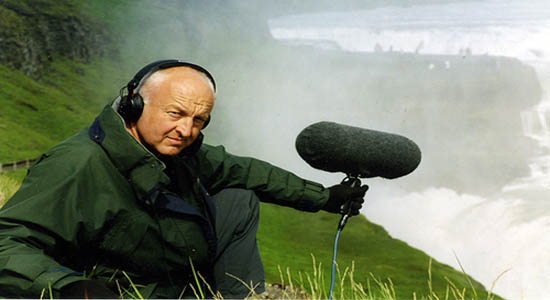The Vulgar Boatmen are an archetypal cult band. Those of us who love them really, really love them, but the three albums the Indiana/Florida band released between 1989 and 1995 never reached a wide audience. So, the reissue of debut You And Your Sister, bolstered by a pair of new remixes and three previously unreleased tracks, is a gift. Dale Lawrence and Robert Ray wrote strummy, propulsive tunes that could recall Good Earth-era Feelies, the Velvet Underground or Stax/Volt soul. The band will be guest editing magnetmagazine.com all week. Read our new Q&A with Lawrence.

Jake Smith: Chris Watson is doing some of the most exciting work in a genre of sound recording that exists at the intersection of wildlife field recording, conceptual sound art and avant-garde popular music. Watson’s professional career began in 1973, when he was a founding member of Sheffield-based band Cabaret Voltaire. Watson left the group in 1981 and took a job doing sound production at a regional television station in Northern England. By the 1990s, he had achieved a-list status as a wildlife sound recordist, working on nature programs such as David Attenborough’s The Life Of Birds (1998), Life In The Undergrowth (2005) and Frozen Planet (2011). If this weren’t enough, Watson began a stunning third act to his career with the release of a series of albums on the British independent label Touch in the late 1990s. These releases established him as a sound artist beyond Cabaret Voltaire and the world of nature documentary, but are also sonic palimpsests that track his unusual career trajectory.
Consider El Tren Fantasma (2011), which was the result of a job that Watson took in 1999 to record sound for an episode of U.K. television series Great Railway Journeys. The program documented a trip on the now-defunct Mexican National Railway line from the Pacific coast to the Gulf of Mexico. Watson took the gig because he saw his own creative uses for the sounds he would record, and El Tren Fantasma is one result. The raw materials may come from a TV documentary assignment, but Watson treats them in a manner that resembles the found-sound collage style he developed in Cabaret Voltaire: Some tracks feature hypnotic loops of atmospheric train sounds, like musique concrète. Other tracks let the train fade to the background in order to immerse the listener in the desert habitat beside the tracks. El Tren Fantasma is a kind of dub remix of Great Railway Journeys: just as dub turns pop production inside out—oice and melody to the back, drum and bass to the front—so Watson’s album pushes the talk and incidental music that dominate TV documentaries to the back in favor of the raw atmosphere inside and beside a moving train. There is another layer of meaning here, since the encounter of the train and natural ecosystems has long been shorthand for environmentalist concern about the entry of the “machine in the garden.” El Tren Fantasma replays that encounter on an endless loop, but with a hauntological twist. As I listen, I can’t tell whether I am mourning the corruption of the garden by industrial society, or the loss of faith in a modernist future once embodied by the sound of the train.
Video after the jump.
https://www.youtube.com/watch?v=VjzUXN10_Ao






